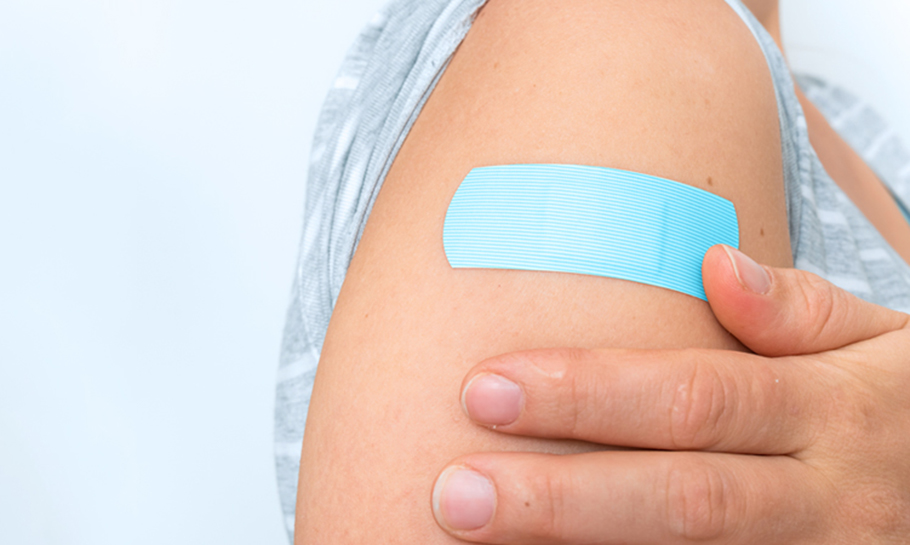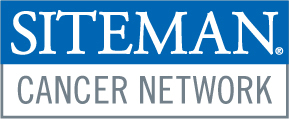Cancer Patients & the COVID-19 Vaccine

The US Food and Drug Administration (FDA) approved the use of two vaccines to help protect individuals from getting COVID-19, a highly contagious viral infection that is especially dangerous for people with weak or compromised immune systems, including cancer patients. These vaccines have been shown to be safe and effective, according to the CDC, and the potential benefits of receiving a COVID-19 vaccine outweigh the known and potential harms of becoming infected with the disease.
While the COVID-19 vaccines are generally recommended for cancer patients, specific types of cancer treatment might affect when the vaccine should be received. This Q&A is intended to provide important information for cancer patients to consider. However, this document does not take the place of your oncologist, who is aware of the specifics of your case and treatment.
We strongly recommend that patients discuss risks and benefits of the COVID-19 vaccine with their oncologist.
The information below represents the current opinions of physicians and at SIH Cancer Institute, Washington University School of Medicine in St. Louis, Siteman Cancer Center and BJC HealthCare related to COVID-19 vaccines for cancer patients.
Why should I consider getting the COVID-19 vaccine?
Cancer patients who get COVID-19 are at higher risk for complications, hospitalizations and even death compared to healthy people who get COVID-19. That’s because cancer patients in active treatment can have a weak-ened immune system, which makes it harder to fight off diseases such as COVID-19.
Based on the opinions of physicians and other experts at SIH Cancer Institute, Washington University School of Medicine in St. Louis, Siteman Cancer Center, BJC HealthCare, we recommend that cancer patients who have completed their treatment get the vaccine. Cancer patients who have not completed their treatment should discuss risks and benefits with their oncologist.
Do the COVID-19 vaccines contain a live virus?
What should I know about live-virus vaccines?
No. The two COVID-19 vaccines do not contain a live virus and do not interact with your DNA.
We do not recommend that cancer patients receive any vaccine that has a live virus. Such live virus vaccines include measles-mumps-rubella (MMR) and varicella (chickenpox) vaccines as well as the nasal mist version of the flu vaccine. The standard flu shot does not contain live virus and is safe for cancer patients to receive.
What if I’m just about to start cancer treatment?
The answer depends on when and how fast your cancer treatment needs to start. Your oncologist will help you make the right decision.
Should I get the vaccine if I’m in the middle of my cancer treatments?
It depends on what type of cancer treatment you are receiving, which is why we strongly recommend talking with your oncologist. But, in general, these are our recommendations for patients undergoing:
Chemotherapy
We recommend if you are completing your chemo-therapy in the next two to three months that you delay getting the COVID-19 vaccination until treatment is completed. For those undergoing chemotherapy for a longer period, it might be beneficial to receive the COVID-19 vaccine in between rounds of chemother-apy. Talk to your oncologist about getting the first or second COVID-19 shot two weeks before a round of chemotherapy.
Radiation Therapy
You should be able to receive the COVID-19 vaccine at any time, but we recommend talking with your radiation oncologist first.
Bone Marrow/Stem Cell Transplant
We recommend that you delay the COVID-19 vacci-nation until one to three months after transplant. We would postpone the COVID-19 vaccine for a longer period of time if you are placed on steroids and experience a significant drop in immunosuppression.
Immunotherapy
We recommend that you talk with your oncologist about the timing for receiving the COVID-19 vaccine.
Chronic Oral Immunosuppressive Medication
If you are not on active treatment but still take chronic oral immunosuppressive drug, we recommend that you get the COVID-19 vaccine.
Should cancer patients who have recovered from COVID-19 receive the vaccine?
The vaccine is recommended for such patients once they have recovered from COVID-19. For those who received convalescent plasma or monoclonal antibodies as part of their COVID-19 treatment, we recommend they wait for three months after receiving convalescent plasma or monoclonal antibodies before they receive the vaccination.
If my child is being treated for cancer, can he or she get the COVID-19 vaccine?
At this time, no COVID-19 vaccine is available for anyone younger than 16.
Should my family get the COVID-19 vaccine?
Yes. We recommend that family members in good health get the vaccine when it is available to them. This will better protect you while you are in treatment.
Should I wear a mask and socially distance after I receive the COVID-19 vaccine?
Yes. No vaccine is 100 percent effective. Therefore, it is important to minimize your risk of getting COVID-19 as much as possible. We recommend that you and those you are in close contact with wear a mask in public, wash your hands frequently, sanitize touched surfaces and try to maintain a small “bubble” of family members that you see.
Additional information for these recommendations comes from the Centers for Disease Control and Prevention (CDC), American Medical Association, American Society of Clinical Oncology (ASCO), American Society of Hematology (ASH) and Infectious Diseases Society of America.
